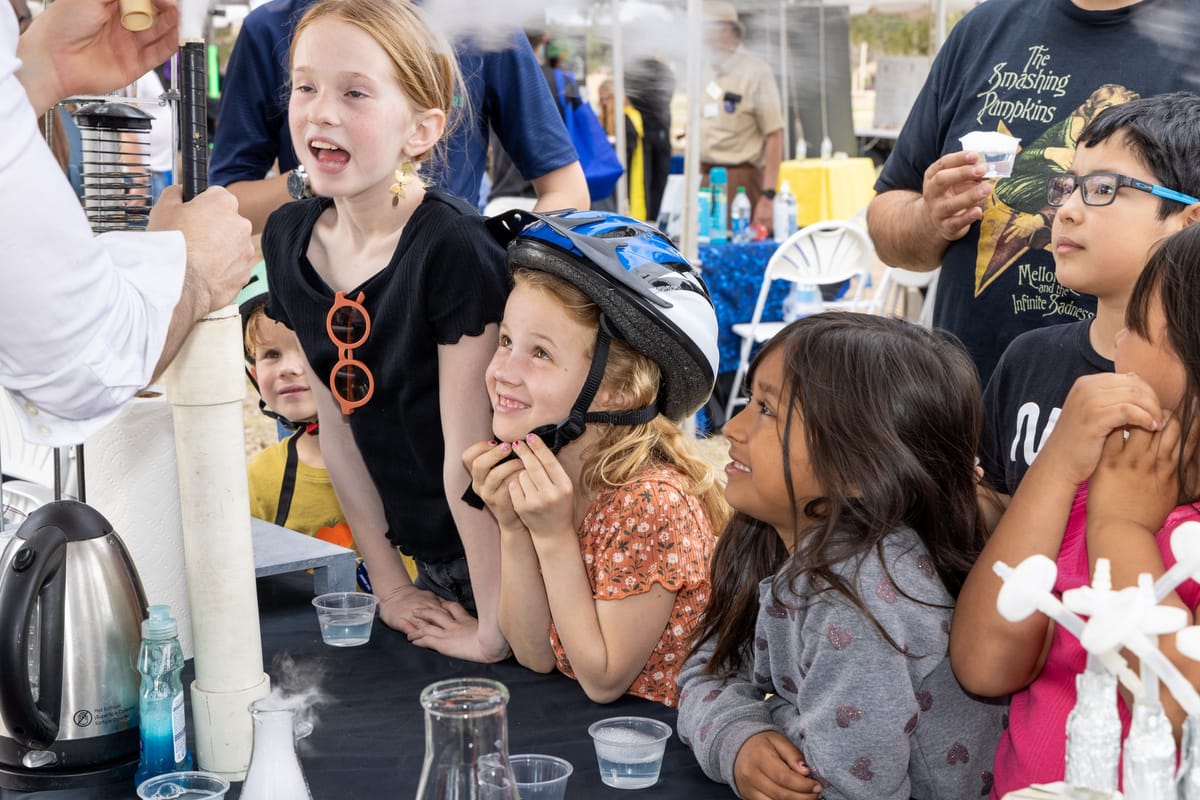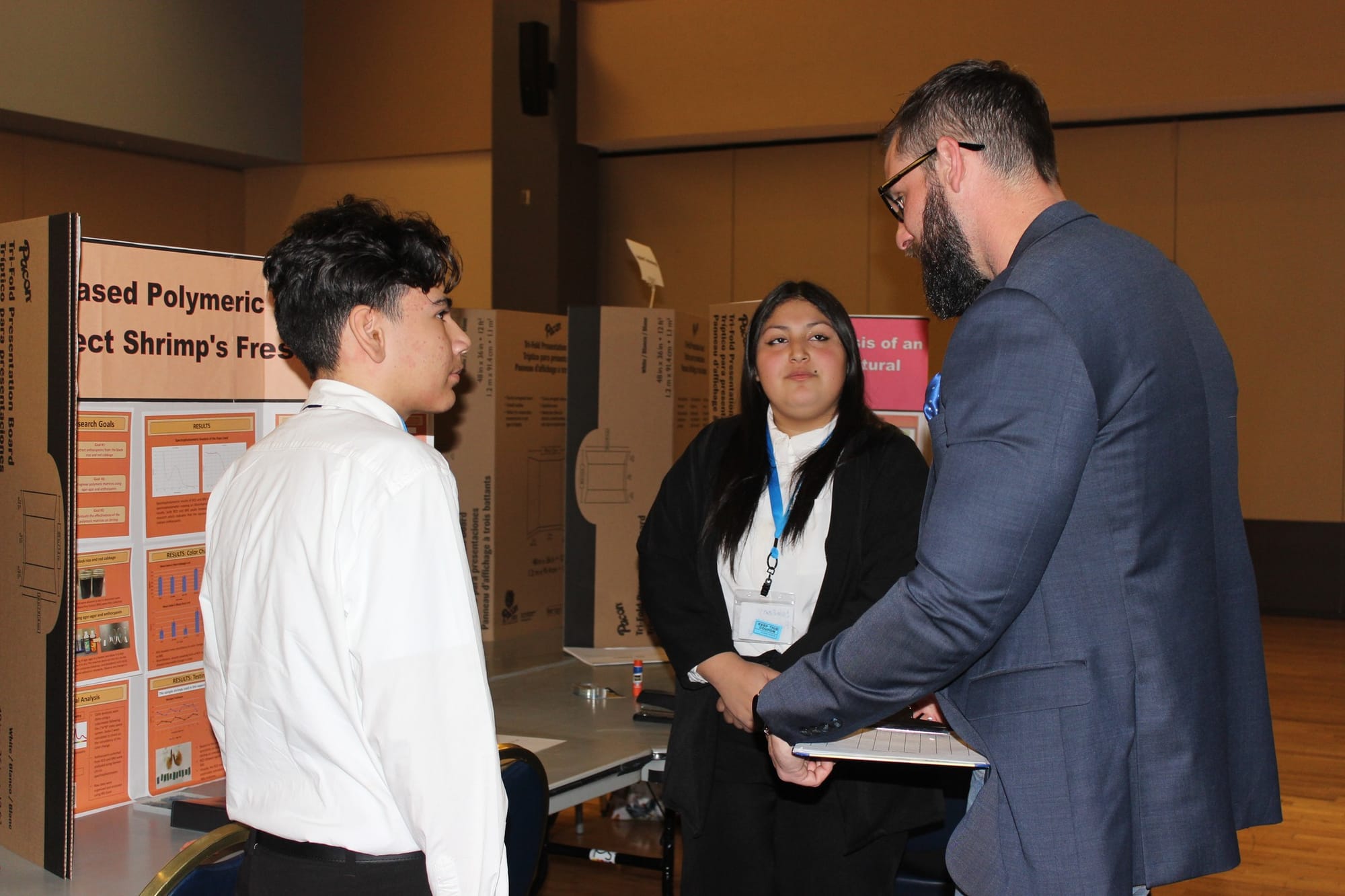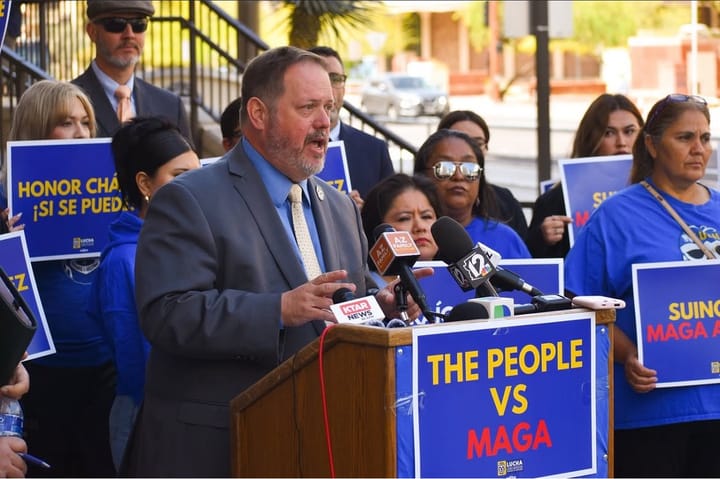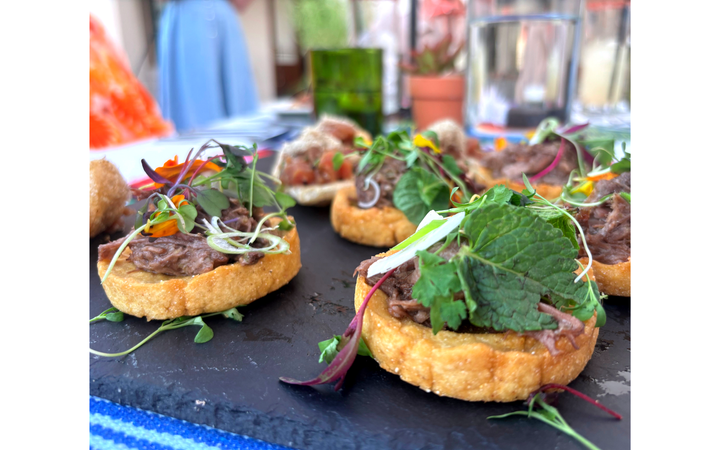SARSEF celebrates 70 years of cultivating confidence and critical thinking
On February 7, SARSEF will host a reunion celebration honoring its seven decades of curiosity in the same space it got its start, the University of Arizona’s Bear Down Gym.

The Southern Arizona Research, Science, and Engineering Foundation is celebrating its 70th year of nurturing the next generation of scientists, engineers, and innovators through its annual science fair.
SARSEF has empowered students from pre-K to 12th grade in Pima County and beyond to solve real-world problems and embrace their creativity, serving as a hub for several transformative STEM programs, including the annual science fair.
On February 7, SARSEF will host a reunion celebration honoring its seven decades of curiosity in the same space it got its start, the University of Arizona’s Bear Down Gym.
"We believe it takes a community to put on a science fair," SARSEF CEO Julie Euber told Tucson Spotlight. "Our programs offer critical support that empowers students to build projects that matter to them and their communities."
Euber sat down with the Spotlight team this week to discuss the impact of the annual fair on its student participants, reminiscing on some of her favorite moments over the years.
She talked about a group of kindergarteners who spent their time sorting library books by character, gender and species, tracking them with color-coded blocks. Once all the books had been categorized, the children counted their blocks to see which type of character was represented the most in their library.
“It was a creative way to understand and visualize data,” Euber said.

Euber and others at SARSEF say the lasting impact of the fair is evident in the success stories of its alumni, like Jeremiah Pate, a Forbes 30 Under 30 honoree.
As a first-grader, Pate tested paper airplane designs for his first science fair project. The early introduction to inquiry-based learning sparked his lifelong passion for innovation.
Pate is the founder of Lunasonde, a geophysics company that uses geophysical technology to explore other planets.
“Throughout my lifetime, I wanted to be like the great scientists of the past,” Pate told Forbes. “It was that early exposure to inquiry-based learning that sparked my desire to push the boundaries of knowledge.”
Now an advocate for STEM education, Pate is passionate about supporting the next generation of innovators. He serves on SARSEF's board, where he mentors young participants and encourages them to follow their curiosity and dream big.
Andrea Esmeralda Hernandez, another SARSEF alumna, also credits her experience with the organization for sparking her passion for science.
While participating in the fair as a student from Nogales, Sonora, Hernandez worked on a project focused on restoring a contaminated lake in Arizona. It was during this project that she first looked through a microscope and was able to visualize microorganisms.
“When I looked through the glass, I saw microorganisms moving with strange shapes and colors. I realized this was where I belonged,” Hernandez said. “It changed my perspective on science, and I knew this was something I wanted to pursue.”
SARSEF's programs go beyond just academic preparation; They instill confidence in students and encourage them to view challenges as opportunities for growth.
SARSEF Development Manager Chelsea Bowdren told Spotlight that she’s heard from students, teachers, and parents about how the experience transformed students' attitudes toward science.
She said programs like SARSEF encourage students to embrace inquiry and failure as part of the learning process.
“I think what inspires me the most about our work is seeing how impactful the programming is for students,” Bowdren said. “They gain the confidence to raise their hands in class and tackle complex problems. I’ve seen students who were initially shy or unsure of themselves blossom into confident young people who aren’t afraid to ask questions or explore new ideas.”

Bowdren noted that SARSEF's impact isn't just seen in academic achievement; it's reflected in the way students approach the world.
“These students develop resilience. They understand that failure is part of learning and that the process of discovery is as important as the final answer,” she said.
She pointed to a moment from a recent Arizona STEM Adventure event. During a conversation about engineering with an exhibitor, a sixth grade student was asked if he wanted to become an engineer when he grew up.
“I am an engineer!” he announced proudly.
Bowdren said it was a powerful moment that perfectly embodied what SARSEF is all about: helping students discover their potential and see themselves as problem-solvers.
“It was amazing to watch,”she said,“This student was so sure of themselves and knew their ideas could tackle big community challenges. It was a moment of pure confidence and inspiration!”
Director of Events and Volunteer Dani Wright recalled one standout project from last year’s fair. A Tucson student set up multiple Raspberry Pi devices around his house to track owl populations by triangulating bird sounds. By analyzing the time it took for the sound to reach each device, he could calculate the direction, speed, and species of the birds, using an existing bird identifier dataset.
Wright said this project stood out because of how it combines engineering, math, science, and nature in a creative way
"It’s an amazing example of how students are using technology to tackle real-world problems and contribute to preserving local ecosystems," she said.

There are 70 years' worth of examples of this type of innovation, according to Wright, who talked about n alum who earned a first-place medal and was so inspired by his early science fair experience that he went on to become a doctor.
"He still treasures that medal…In his memoir, he credits the science fair with shaping his career and lifelong passion for STEM," said Wright.
SARSEF's reach continues to expand, engaging students from across Southern Arizona and beyond. More than 130 schools participated in the region’s science fair last year, with Euber saying it’s important to continue to inspire students to pursue careers in science and engineering, as these fields are critical to addressing the challenges of the future.
“There’s a critical shortage of scientists and engineers,” she said. “We need to inspire more students to enter these fields. STEM occupations grew by 24.4% between 2005 and 2015, and that trend is expected to continue. The work we do today will directly impact the scientific and engineering landscape of tomorrow.”
From young children exploring the diversity in their libraries to high school students solving complex environmental problems, SARSEF’s science fair and similar STEM programs have a profound impact on Southern Arizona’s future innovators, Wright said.
By fostering creativity, critical thinking, and problem-solving skills, SARSEF is preparing students not only for careers in STEM, but for success in any field.
Registration for February’s fair is open for students and SARSEF is actively recruiting volunteers. The 70th annual celebration event will take place Friday, Feb. 7 from 6 to 8:30 p.m. Find more details and register here.
Angelina Maynes is a journalism major at the University of Arizona and reporter with Tucson Spotlight. Contact her at angelinamaynes@arizona.edu.
Tucson Spotlight is a community-based newsroom that provides paid opportunities for students and rising journalists in Southern Arizona. Please support our work with a paid subscription.




